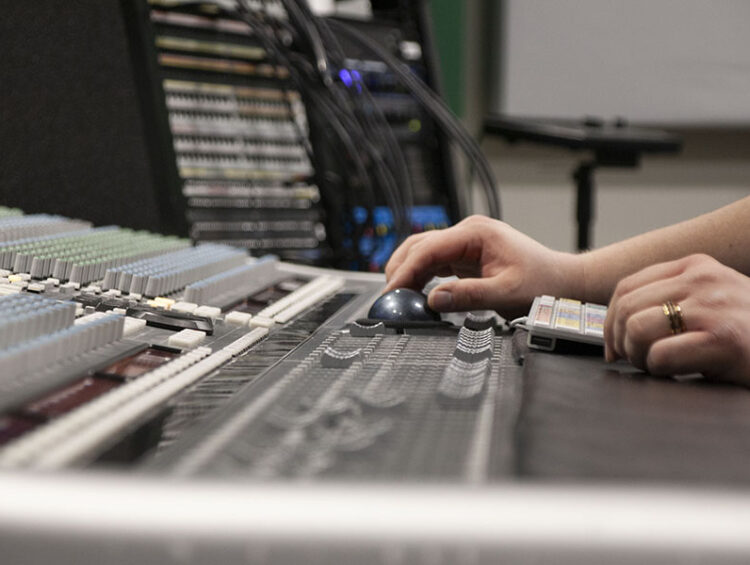Studio engineers play a crucial role in the film and television industry, ensuring that every sound effect, dialogue, and piece of background music is perfectly mixed and balanced. Without their expertise, movies and TV shows would lack the immersive audio experience that keeps audiences engaged. In this article, we will explore the significance of studio engineers in film and television sound production, their responsibilities, and the tools they use.
1. What Does a Studio Engineer Do in Film and Television?
A studio engineer in the film and TV industry is responsible for recording, editing, mixing, and mastering audio to match the visual elements. Their tasks include:
- Recording dialogue and voiceovers: Ensuring clarity and synchronization with the visuals.
- Mixing sound effects and foley: Enhancing realism through background noise and action sounds.
- Balancing music scores: Ensuring that background music does not overpower dialogue.
- Mastering the final audio mix: Preparing the final product for theaters, streaming, or broadcast.
Studio engineers work closely with sound designers, composers, and directors to achieve the perfect audio mix.
2. The Role of Sound in Film and TV Production
Sound in film and television serves multiple functions:
A. Enhancing Storytelling
Good sound design can make a scene more dramatic, emotional, or suspenseful. For example, in horror films, eerie background sounds create tension before a jump scare.
B. Creating a Realistic Experience
Background sounds like footsteps, city noise, or birds chirping make scenes feel more authentic. Without these elements, a film might feel unnatural and disconnected from reality.
C. Setting the Mood and Atmosphere
Music and sound effects help establish the tone of a scene. For instance, orchestral scores often accompany emotional moments, while intense beats drive action sequences.
D. Ensuring Clear Dialogue
Viewers must be able to hear and understand the actors. Studio engineers use advanced techniques to remove background noise, adjust volume levels, and ensure that every word is crisp and clear.
3. Key Audio Components in Film and TV Production
A. Dialogue and ADR (Automated Dialogue Replacement)
- Dialogue is recorded on set, but sometimes it needs to be re-recorded in the studio (ADR) due to background noise or poor quality.
- Engineers sync ADR recordings with the actors’ lip movements to maintain realism.
B. Foley Sound Effects
- Foley artists create sounds like footsteps, doors closing, or fabric rustling in a studio.
- Studio engineers mix and edit these sounds to fit seamlessly into scenes.
C. Background Score and Music
- Studio engineers work with composers to balance the film score with dialogue and effects.
- Music should enhance the emotion of a scene without distracting from the story.
D. Surround Sound and Spatial Audio
- Engineers mix audio in formats like Dolby Atmos or 5.1 surround sound to create an immersive experience.
- This is essential for theaters, home entertainment systems, and VR productions.
4. Tools and Technology Used by Studio Engineers
A. Digital Audio Workstations (DAWs)
- Pro Tools: Industry standard for film and TV post-production.
- Logic Pro X: Used for scoring and composing music.
- Adobe Audition: Great for dialogue editing and sound restoration.
B. Sound Effects Libraries
- Hollywood Edge: Used for realistic environmental sounds.
- BBC Sound Effects: A vast collection of high-quality sound clips.
C. Noise Reduction and Enhancement Tools
- iZotope RX: Removes background noise, clicks, and hums.
- Waves Clarity VX: Used for cleaning up dialogue recordings.
D. Surround Sound Mixing Tools
- Dolby Atmos Renderer: Allows engineers to mix sound in a 3D space.
- Waves 360 Surround Tools: Helps create immersive audio experiences.
5. Challenges Studio Engineers Face in Film and TV Production
A.Poor Audio Quality from On-Set Recordings
- Background noise, wind, or mic issues can make dialogue unusable.
- Engineers must use noise reduction software or ADR to fix these problems.
B. Tight Deadlines
- Post-production teams often have limited time to mix and master audio before a film’s release.
- Engineers must work quickly while maintaining high-quality sound.
C. Maintaining Sound Consistency Across Different Devices
- A movie’s audio must sound great in theaters, on TVs, and on mobile devices.
- Engineers use mastering techniques to ensure balance across all formats.
6. The Future of Studio Engineering in Film and TV
A. Artificial Intelligence in Audio Processing
- AI-powered tools can automatically clean up dialogue and enhance sound quality.
- Machine learning can help engineers identify and correct audio issues faster.
B. Virtual and Augmented Reality Sound Design
- Engineers are now working on 3D audio for VR and AR applications.
- Spatial sound enhances immersion by simulating real-world listening experiences.
C. Cloud-Based Collaboration
- Platforms like Avid Cloud Collaboration allow engineers to work remotely.
- This is especially useful for international projects with global teams.
Conclusion
Studio engineers are essential in film and television production, ensuring that every sound is perfectly balanced and immersive. Their expertise in dialogue recording, sound effects, music mixing, and mastering brings stories to life. With advancements in AI, surround sound, and cloud collaboration, the role of studio engineers will continue to evolve, shaping the future of audio in entertainment.





